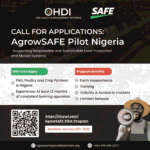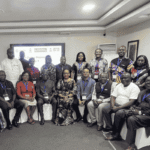As of April 2022, 88% of corporate cage-free egg commitments with deadlines of 2021 or earlier have been fulfilled. More than 2,300 food corporations around the world have adopted animal welfare policies that remove cruel battery cages from their egg supply chains. Of these commitments, 982 companies have successfully completed the transition of their supply chains to cage-free.
On May 16th OWA launched the 2022 Cage free fulfilment report. This is the second cage free egg fulfilment report which contains information on corporate cage free commitment globally. This report is providing an opportunity for each group and the public to understand that most companies are meeting their animal welfare promises , but that there are some companies who are lagging behind when it comes to progress and transparency. .
The Open Wing Alliance (OWA), a global coalition of organisations around the world, works tirelessly to end the cruel use of cage confinement of egg-laying hens within our industrialised food system. This is a coalition of more than 80 organisations from 63 countries that has been working for over a decade to secure cage-free welfare pledges from the world’s largest food companies.
For the period of 2020-2022, 500+ corporate cage-free welfare policies have been secured around the world, while in Africa we have 15 cage-free commitments. There are some corporations which have a cage free policy and transition of their supply chains to source 100% of their eggs from hens free from cruel cages by their specified deadlines, but they are yet to publicly report on their progress in the region, such as Hilton Hotels, Radisson Hotels Group and Unilever.
However, in Africa there are corporations with cage-free commitments such as Danone, Marriott, Starbucks and Kraft Heinz who are publicly reporting on their progress, which gears up the spirit of transparency and encourages others to make cage-free commitments.
Earlier this year, leading multinational retailer Majid Al Futtaim who operate Carrefour stores in Kenya, Cameroon, Uganda and Egypt made a global cage-free egg commitment, highlighting that consumers in the region are concerned about animal welfare. This is still a challenge for hen welfare in the Africa region and there are various companies that are lagging behind and have still have not yet even made cage free commitments. Retailers such as Pick n Pay, Shoprite and Massmart are falling behind with this progress on laying hen welfare in the region, and need to make a cage-free commitment to demonstrate to the public that they care about animal welfare.
Open Wing Alliance director Alexandria Beck Says “Securing thousands of corporate animal welfare pledges is an important indicator of progress for farm animals, though we know that public commitments alone won’t lead to improved treatment of animals,” Says Beck.
“To actually save hens from a life confined in crowded, metal cages, we need to see companies making and reporting on progress towards their cage-free goals, facilitating the transition of their supply chains away from these cruel practices. Our data shows that the future is cage-free—with more than 11% of the global hen flock already free from cages. This new industry standard has been set in every major market worldwide.”





